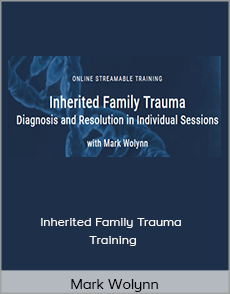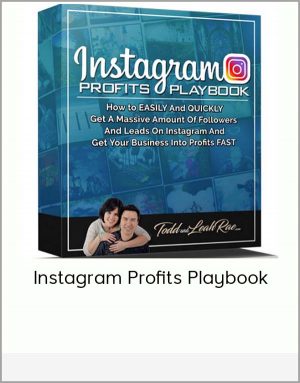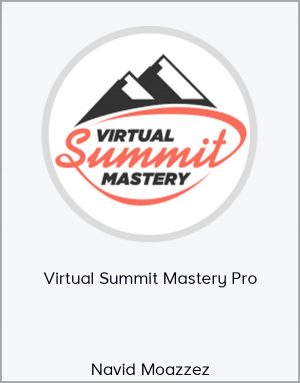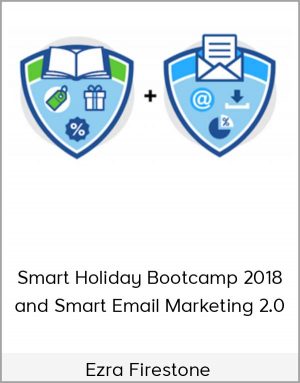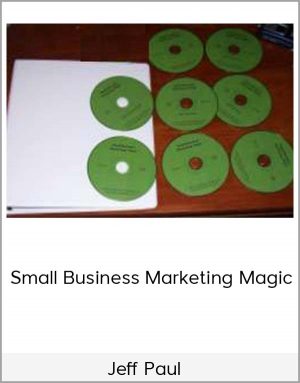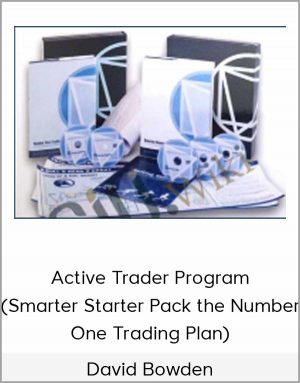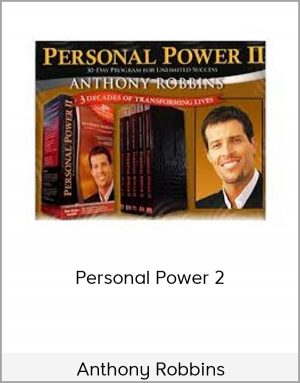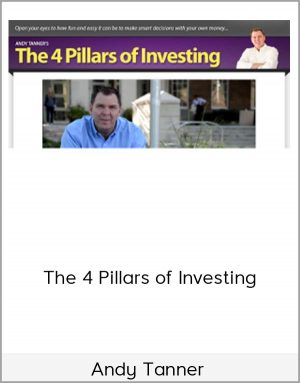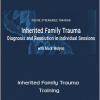Mark Wolynn – Inherited Family Trauma Training
$140.00
Due to the depth of the exploration in this training, we strongly recommend that all participants integrate this work in personal therapy with a psychologist or trauma-informed psychotherapist.
SalePage
Mark Wolynn – Inherited Family Trauma Training

Check it out: Mark Wolynn – Inherited Family Trauma Training
Online Streamable Training
Inherited Family Trauma
Diagnosis and Resolution in Individual Sessions
with Mark Wolynn
“Unconscious family loyalties and unresolved traumas are carried in the words we speak, the symptoms we express and the body defenses we unknowingly construct.”
Ready to take things to the next level? Join Mark Wolynn, author of the award-winning It Didn’t Start With You (Viking/Penguin), and learn effective ways to break inherited patterns of suffering. Whether you’re already working with people or just want to learn more, this professional development course is a fast track to deepening your clinical skills.
In this training, you will learn how to work with clients—both online and in person—identifying the unconscious loyalties, unresolved traumas and hidden dynamics that contribute to patterns of illness, unhappiness and dissatisfaction. You’ll also be given the tools and essential skills to implement practical and safe interventions to deepen your client’s healing process.
In this training, you will:
- Learn how to quickly expose the root cause behind emotions, behaviors and reactive patterns that keep your clients stuck.
- Learn to recognize the Four Unconscious Themes that can affect heath, vitality, success and relationships.
- Learn the Core Language® Approach—a specific method of questioning designed to quickly reveal the source of an issue.
- Learn how to identify trauma language that lives beneath the client’s story.
- Learn essential skills for implementing effective resolutions in one-on-one sessions.
- Learn how to work with chronic illness and persistent medical conditions.
- Learn how to track the words, fears, symptoms and behaviors that lead to unresolved traumas in the family history.
- Learn how to distinguish the pivotal events in a traumagram.
- Provide clients with a context for understanding the physical, psychological and emotional symptoms they’ve been experiencing.
- Provide clients with new images and healing sentences for resolution.
- Learn body-centered practices based in neuroscience to ground positive experiences in the body.
Due to the depth of the exploration in this training, we strongly recommend that all participants integrate this work in personal therapy with a psychologist or trauma-informed psychotherapist of their choice.
“Mark’s uncanny ability to uncover the essential dynamics operating beneath physical complaints is nothing short of miraculous.” – Dr. Bruce Hoffman, The Hoffman Centre for Integrative Medicine
“Mark took my practice, understanding, scope and depth of this work to a whole new level.” – Felice Laurel, Family Constellation Facilitator
“This model of therapy has provided me with valuable answers to some of the most complicated questions, both personally and professionally.” – Gemma Stone, Registered Clinical Psychologist
“As medical doctors, we often treat the symptom. I’ve witnessed Mark identify the pattern and treat the cause.” – Dr. Russ Kennedy
“The problem, as well as the solution, is often revealed within the first moments of interaction. If we listen only to our client’s story, we risk following our clients into the places where they perpetuate their issues and remain stuck. However, when we know how to get to the core of an issue, we can implement the most potent solutions.” – Mark Wolynn
CLASS ONE
TRAUMA LANGUAGE
- Integrating Splits
- Trauma Language—verbal and nonverbal
~ Case: “I don’t deserve to live” - Job of the Therapist
- Latest Research in Epigenetics
- Why Traumas Repeat
- How We Heal
- Introducing the Four Unconscious Themes
- Family History and Early Trauma Questions
- Those in Our Family System Who Impact Us
- Some Possible Sources of Early Trauma
CLASS TWO
FOUR UNCONSCIOUS THEMES
- Case: Synagogue Shooter
- Deepening the Four Themes
- Merging with a Parent
~ Case: “Tinnitus”
~ Case: “Boxed in”
~ Case: “Dyspareunia” - Identification in the Family System
~ Case: “I hope he dies”
~ Double Shift in Object and Subject - Rejection—a Deeper Perspective
- Essential Qualities of a Break in the Mother-Child Bond
CLASS THREE
THE ART OF LISTENING
- Facilitation—Two Types of Listening
- Listening from Inside the Body
- Four Tools of the Core Language® Approach
- The Core Complaint
~ Case: Exposure
~ Case: Schizophrenia - 12 Questions that Generate Core Language
CLASS FOUR
CORE DESCRIPTORS
- Breaking Down the Intake and Session
- Who Belongs in the Family System
- Analysis of a Complex Case—What do you work with?
- Gathering the Core Descriptors
- The Impact of Negatively-Charged Language
- The Core Sentence
- Types of Core Sentences
CLASS FIVE
SPINING THE ROLODEX
- Refining our Core Sentence
- Distilling It Down and Testing It in our Body
- Demonstration with Trainees
- Spinning the Inner Rolodex
- Knowing What Questions to Ask When
CLASS SIX
FROM GENOGRAM TO TRAUMAGRAM
- Spinning the Rolodex—Part 2
~ Dynamics Behind Erectile Dysfunction
~ Dynamics Behind Shame - How Entanglements are Created
- The Core Trauma
- Creating an Inherited Family Traumagram
- Demonstration with Students
CLASS SEVEN
HEALING INHERITED TRAUMA
- The Traumagram—Part 2
- Effective Resolutions: Creating a New Experience
- Session Strategies
- Healing Language to Break an Unconscious Merging/Identification
CLASS EIGHT
INTEGRATING FRAGMENTATIONS
- Overview: What We Learned So Far
- How to Structure an Online Session
- Working with Merging/Identification—Part 2
- Working with a Break in the Bond—
Part 1
~ Eyes-Closed Exercise with our Mother
~ Locating Fragmented Parts
~ Integrating Fragmented Parts
~ Designing Homework Assignments that Anchor Integration in the Body - Healing Language to Break an Entanglement
CLASS NINE
THE BREAK IN THE BOND
- Overview: Gathering the Clues of the Case
- The Anatomy of Healing
- Steps to Working with a Break in the Bond
~ Recognize the Signs
~ The Toolbox - Demonstration with Student
- How to Work with Stuckness
~ Client experiences only pain, tightness, numbness, etc.
~ Client can’t feel anything in the body - Healing Sentences for a Break in the Attachment
- Tips for Working with Inherited Trauma
CLASS TEN
PUTTING IT ALL TOGETHER
- Facilitating Positive Images and Experiences
- “The Orders of Helping”
- Designing Homework Assignments that Sustain Integration
- Healing Sentences that Help Shift a Break in the Bond
~ Sentences a Therapist could say to Client
~ Sentences a Mother could say to her Child
~ Sentences We could say to our Mother - Q&A
- Demonstration Session: Inherited Family Trauma Case
2021 Advanced Training with Mark Wolynn (Bonus Classes)
- Fathers, Mothers, Sons and Daughters—How to Work with Inundation and Rejection
- Early Trauma and the Mother-Child Bond
- Trauma Language and the Traumagram
- Somatic Awareness in the Inherited Family Trauma Process with Merissa Turner
Due to the depth of the exploration in this training, we strongly recommend that all participants integrate this work in personal therapy with a psychologist or trauma-informed psychotherapist.
Information on Continuing Education Credit for Health Professionals
- CE credits for psychologists are provided by the Spiritual Competency Academy (SCA) which is co-sponsoring this program. The Spiritual Competency Academy is approved by the American Psychological Association to sponsor continuing education for psychologists. Spiritual Competency Academy maintains responsibility for this program and its content.
- The California Board of Behavioral Sciences accepts CE credits for LCSW, LPCC, LEP, and LMFT license renewal for programs offered by approved sponsors of CE by the American Psychological Association.
- LCSW, LPCC, LEP, and LMFTs, and other mental health professionals from states other than California need to check with their state licensing board as to whether or not they accept programs offered by approved sponsors of CE by the American Psychological Association.
- SCA is approved by the California Board of Registered Nursing (BRN Provider CEP16887) for licensed nurses in California. RNs must retain this document for 4 years after the course concludes. SCA is an approved CE provider for National Board Certified Health and Wellness Coaches (CEP Number 100196)
- For questions about enrolling in CE or receiving your Certificate of Attendance, visit markwolynn.com or email [email protected]
- For other questions about CE contact David Lukoff, PhD at [email protected].
Disclaimer of Liability
Please note that The Family Constellation Institute, The Hellinger Institute of Northern California and Mark Wolynn do not assume any responsibility for, nor are they liable for, the actions, non-actions, words or behaviors of practitioners associated with or trained by Mark Wolynn or the above institutes. Mark does not supervise the ongoing work of the practitioners in any capacity, and is not familiar with many of the other methods and modalities they may use. For that reason, Mark Wolynn and the above institutes cannot warrant or endorse the services provided by other practitioners or the effectiveness of the therapy you receive.
